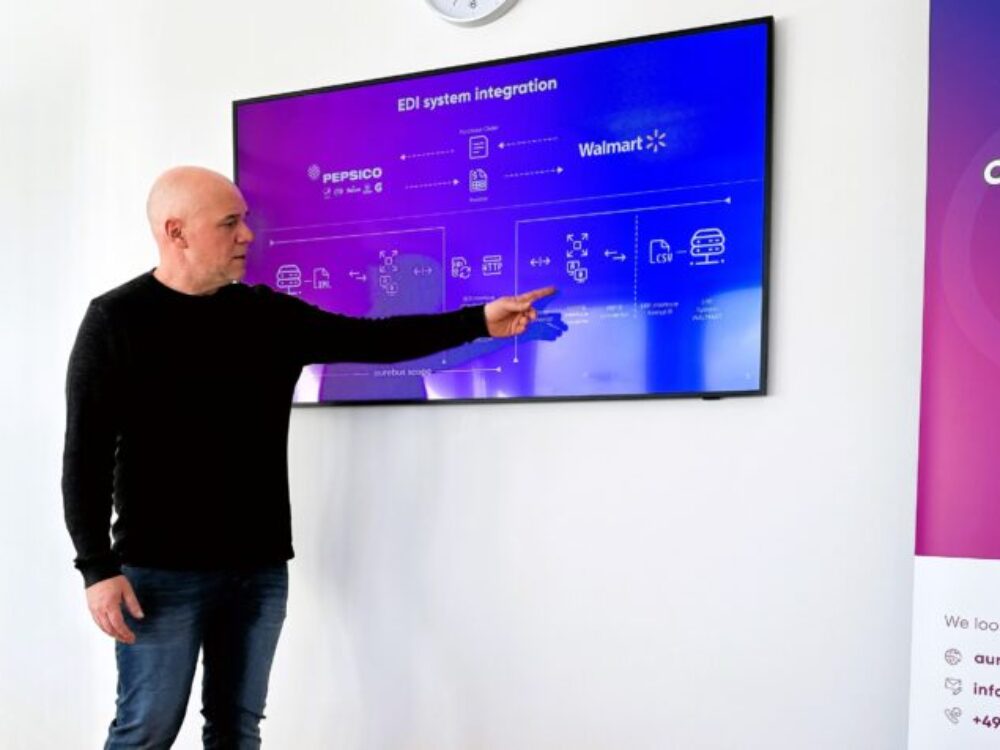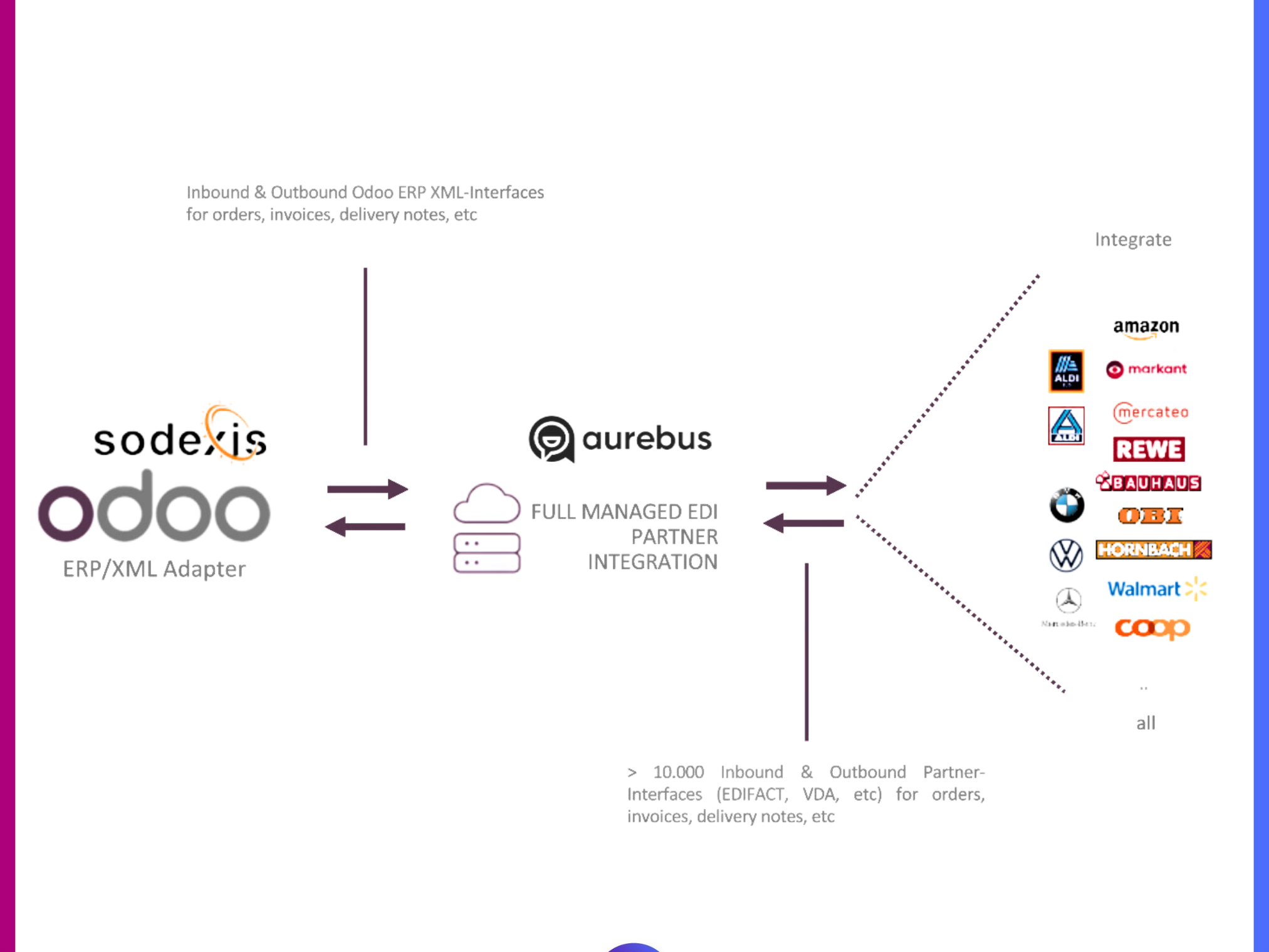IT System Administrators in the EDI World: What’s the Same, What’s Different?
We love EDI. But what does one do in our IT infrastructure, and what does a typical day look like? An interview with our CEO Klaus Dirsen.

Klaus, what is the job of IT Admins / System Engineers at Aurebus?
We place great importance on the smooth operation of IT systems and infrastructures in our MS Azure EDI Cloud and in the systems we manage for our customers. Our IT administrators play a crucial role in ensuring that we are always able to provide the best service to our customers.
IT administrators at Aurebus are responsible for monitoring the performance and availability of our networks, servers, and systems. They ensure everything runs smoothly and conduct regular maintenance to keep our systems current and secure.
In the EDI field, our IT admins are the first point of contact for the design, planning, installation, monitoring, or updating of the SEEBURGER systems we manage. This is a crucial responsibility as it is also part of the services we offer to our customers.
When issues arise, our IT administrators are also the first responders. They quickly and efficiently identify and resolve problems to minimize downtime. They provide technical support to our staff and help resolve IT-related questions and issues.
IT security is also a top priority: At Aurebus, we take the security of our data and systems very seriously. Our IT administrators are responsible for ensuring that our security policies and procedures are followed. They monitor systems for potential security threats and take action to protect our data and systems.
Our IT administrators perform regular upgrades of our software and hardware to ensure we are always up to date with the latest technology. They also implement new systems and technologies to improve the efficiency and performance of our IT infrastructure.

The work of an IT administrator at our company is diverse and challenging because, in addition to being responsible for the internal IT infrastructure, they also regularly provide their services for our customers. As a result, we deal with a very heterogeneous system landscape overall – soit never gets boring.
Which qualities and skills are particularly important to you as a CEO?
Good question and my favorite topic: as I hinted in the last question – regardless of the position at Aurebus, I consider two skills to be especially important: communication skills and customer focus.
Both are key characteristics of our corporate culture and a vital aspect of our commitment to excellent service and collaboration.
Let me explain why I consider both so important:
Communication skills enable us to convey ideas and information effectively, maintain relationships, and solve problems together. As good communicators, we can express complex information clearly and precisely. We ensure that our messages are understandable and comprehensible.

But it’s not just about speaking, it’s also about listening. When we actively listen and ask clarifying questions, we show empathy and understanding for the other person’s point of view.
As effective communicators, we also seek and provide constructive feedback. We are open to criticism and use it as an opportunity for improvement.
It is also important that we can adapt our communication style to different situations and people. We aim to understand the needs of our audience and adjust our messages and our style accordingly. By doing so, we ensure that we create a good, mutual understanding.
As good communicators, we can effectively manage conflicts. We should be able to recognize and manage emotions, propose fair solutions, and always contribute to a positive outcome.
Last but not least, every good communication is based on respect. Respect for other opinions and perspectives, especially when they differ from our own.

When we think of customer focus, we often think of someone who buys a product or service from us. However, I want to expand the concept of “customer” and encourage you to view it from a broader perspective.
Indeed, a “customer” can be anyone to whom we provide a service. This can include external customers who purchase our products or services, but also internal “customers” such as our colleagues, team members, supervisors, partners, or other departments we serve in our daily work.
Even in our personal lives, we can have “customers,” for example, when we help our friends, family members, or communities.
Why do I consider this perspective important?
It highlights the importance of customer focus in our daily lives. For me, customer focus means recognizing and addressing people’s needs, serving them, and creating value. It is about showing empathy, listening, and striving to positively impact the experiences of the people we interact with.
With a strong customer focus, we can build better relationships both professionally and personally, collaborate more effectively and joyfully, and have a greater impact. Customer focus helps us position ourselves as valuable members of our team, organization, and community.
I believe it is important to see a potential “customer” in this sense in every person we encounter. To do this, we can ask ourselves how we can make our “customer’s” day a little better.
Could you describe a typical day in the life of IT system admins?
Every day is usually different. However, let me construct an example day:
8:00 AM – Start of the Day: The day begins with a check of systems and networks to ensure everything is running smoothly. This includes reviewing server performance, network connections, and security protocols – also for some customer systems.
9:00 AM – Team Meeting: A short stand-up meeting with the team to set priorities for the day, discuss current issues, and update the status of ongoing projects.
10:00 AM – Customer Support: A meeting with a customer to plan an EDI upgrade. During this, the customer’s requirements are discussed and a timeline for implementation is established.
11:00 AM – System Maintenance: Performing maintenance work on internal systems, including software upgrades and security patches.
12:00 PM – Lunch Break
1:00 PM – Problem Solving: Handling support tickets. This could involve resolving a network issue, debugging software, or assisting an employee with an IT-related problem.
2:00 PM – EDI Project Work: Working on an EDI implementation project for a customer. This could involve testing new EDI messages, validating data, or troubleshooting issues that occurred during testing.
4:00 PM – Customer Call: A call with a customer to discuss a recently completed EDI project and gather feedback.
5:00 PM – End of the Day: Reviewing systems and planning for the next day. Communicating with the team about outstanding tasks or issues that require further follow-up.

